Ask the Chiefs: If You Could Go Back to Your First Day as a Chief Officer, What Advice Would You Give Yourself?
July 6, 2025Ask the Chiefs
If You Could Go Back to Your First Day as a Chief Officer, What Advice Would You Give Yourself?
By Terry Garrison & John Vance
B Shifter Buckslip, July 8, 2025
Dear Chiefs,
They say experience is the best teacher. If you could go back in time, what advice would you give yourself on your first day as a chief officer?
Signed,
Hindsight 2020
This is a great question and one we all should ask ourselves regarding the different positions we have held during our careers. I don’t think I have taken enough time to reflect on the different positions and situations I have been in during my life. I got so caught up in moving to the next role that I never took a moment to look back on the previous one. By looking back, I don’t mean living in the past or obsessing over what I had done, but rather taking the time to learn from my experiences, both positive and negative. After all, the best incident commanders take the time to perform an after-action review of their incidents with the sole purpose of doing better the next time. Why wouldn’t we apply a similar process to our careers to better prepare ourselves for the next position or promotion?
There are so many things I have learned over the years through my experiences, and I’ve learned even more from reviewing Chief Brunacini’s books, napkins and notes while developing the Silverback Leadership Program we’ve been rolling out in B Shifter. Aphorisms like “Play your position,” “Don’t yell down,” “Success isn’t final and failure isn’t fatal,” “Listen more than you talk,” and Be nice” only scratch the surface of what he taught me. However, you want to know specifically what I would say to myself on my first day as a chief officer, so I will narrow down my answer.
When I think back to my first role as a fire chief, three things quickly come to mind:
1. Trust your intuition.
2. Know your personal and professional values.
3. Don’t take things so personally.
Go With Your Gut
Intuition is the result of living through experiences time and again, which develops insight and helps guide us through decision-making when we encounter similar situations. We formalized the process with the Strategic Decision-Making Model we use at emergency incidents. As you recall, the SDMM involves identifying the critical factors, selecting the appropriate risk level based on the Risk-Management Plan, determining the strategy and implementing the incident action plan. Whether we realize it or not, every time we use the SDMM, we are developing slides in our mind that we use later to make fact-based, intuitive decisions. The same thing occurs, only less formally, in leadership positions as we process and learn from each leadership experience. It is not like we drop into our new leadership role from Mars. Hopefully, we have paid attention and watched, listened and learned from the people we worked for or near. My first day as a chief officer was not my first day thinking like a chief officer, and I wish that I had had a better sense of that at the time. It would have eliminated a lot of self-doubt and consternation in my new position. If I had trusted my intuition more, life would have been less stressful.
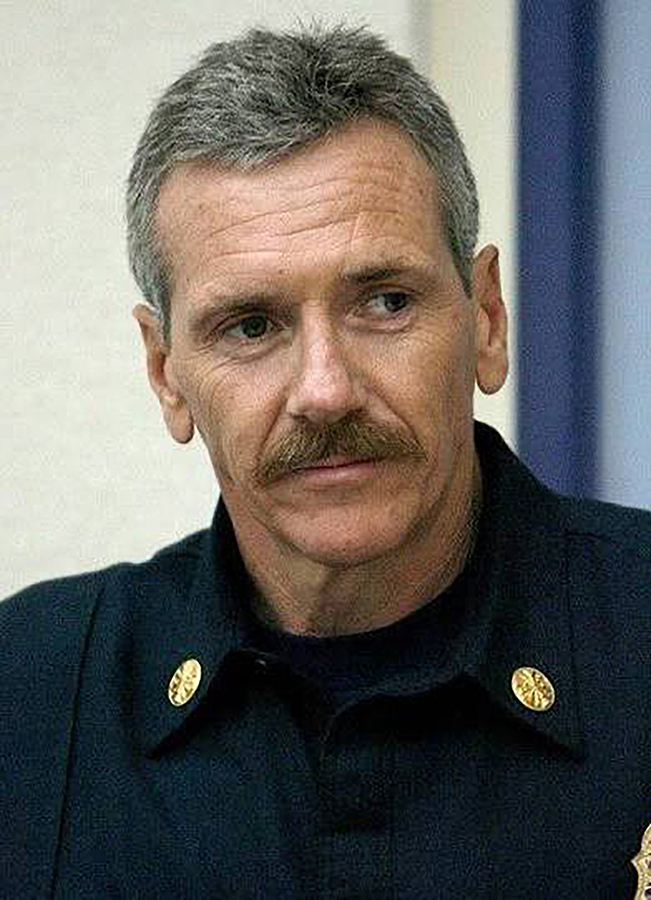
Stepping into the chief’s role in Oceanside, Calif., was daunting at first, but paying attention to Bruno’s stellar example for almost 30 years prepared me to think and act like a fire chief.
Let Your Values Drive the Mission
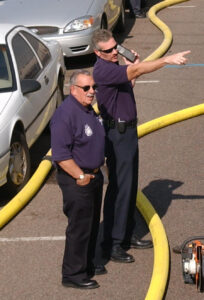
Knowing your personal values determines what is important to you, and more importantly, what you will and will not allow or support. I was extremely fortunate to have worked for Bruno for almost 30 years. He instilled his personal values in our organization and expected every employee to uphold them. These values included providing the highest level of service to our customers, always ensuring firefighter safety, and—of course—being nice while doing both. From my very first day as fire chief in Oceanside, Calif., Houston, Texas, and Glendale, Ariz., I ensured that everyone knew my values. Each organization adopted them as our primary mission statement: be safe, be nice and be accountable. The good news is that I did not have to force my values. They were easily adopted by the labor leaders, command officers, supervisors, staff and firefighters because they were simple to understand and explain, and they made sense. I could not have implemented these values without the support and help of the entire organization.
How They Feel about You Is All about Them
I felt as if I was on pretty good ground with my values because they were so ingrained in me (Thanks, Bruno!). But one area I did struggle with was not taking things personally. When you come up through the same department for 30 years, you build a reputation, and people pretty much know who you are and what you can do (character and capabilities). But going to a different department in a different state is quite different. In many ways, you need to start over in building your reputation.
First, let me say that we should not get too caught up in our reputation, which is really how people think (feel) about us. And believe me, everybody has an opinion—especially about the new fire chief. What I have learned is that people’s feelings about me are not really about me; they are more about them and how my showing up could impact them personally. I don’t necessarily mean this in a negative way (although that could also be true). I mean it in a practical way. Bruno used to say there are two things firefighters don’t like: 1) the way things are and 2) change. The week after Bruno retired, I was moved from my deputy position in the operations division to fire marshal. Sometimes, change can punch you right in the face. (And let me answer the question you may be asking: Yes, I lived.)
As a new fire chief, I feel like I took things too personally and didn’t try to see why a certain person felt a certain way. For instance, my new city manager wanted me to decrease one of our three-person engine companies to a two-person engine company. I explained why that was not a good idea several times, but he just didn’t get it. (Reminds me of the saying, “I can explain it to you, but I can’t understand it for you.) When he insisted that I decrease the engine again, I took it as a personal insult, lost my temper, and we exchanged some very suggestive language regarding body parts and positioning. Which ultimately led to our mutual decision that I find employment elsewhere.
Looking back, the way I responded was inappropriate. I should have understood that he was simply the messenger for the city council, which wanted to decrease resources and demonstrate its power. It was more about politics than budgets, but I was way too fired up to see the forest through the trees. Since then, I have been in a similar situation with a different city manager and mayor, and I was able to stay calm and successfully argue with facts and figures, not elbows and assholes, which brings me back to my first two points: trusting my intuition and sticking to my values on firefighter safety and customer survival.
Thank you for such a thought-provoking question. Be safe, be nice and be accountable.
—Terry Garrison
If I could go back and give advice to myself on my first day as a chief officer, I’d probably ask for a comfortable chair, a cup of coffee and 15 more years to get ready. But since that’s not what happened, I’ll settle for a few key lessons I wish I’d understood from the start. Some came hard. Others came quietly. All of them made me better.
I Was 34 Years Old When I Became a Fire Chief. That’s Too Young.
Looking back, I can say with certainty: 34 is too young to be a fire chief. Sure, I had energy, ambition and a head full of ideas—but I also had a lot of growing to do. I had held leadership roles since my teenage years, so commanding people came naturally. But nothing prepares you for the unique weight that comes with being The Chief. You don’t just run calls anymore, you run the whole show. Budgets. Personnel. Politics. Growth. Headaches.
And we were a young department. Only a few folks were older than I was, and the community was growing. We were adding full-time staff, trying to keep up with infrastructure needs, and launched an ALS ambulance program during my tenure. It was exciting—but it was also relentless. Fast growth with limited funding is like trying to build an airplane while it’s already in the air.
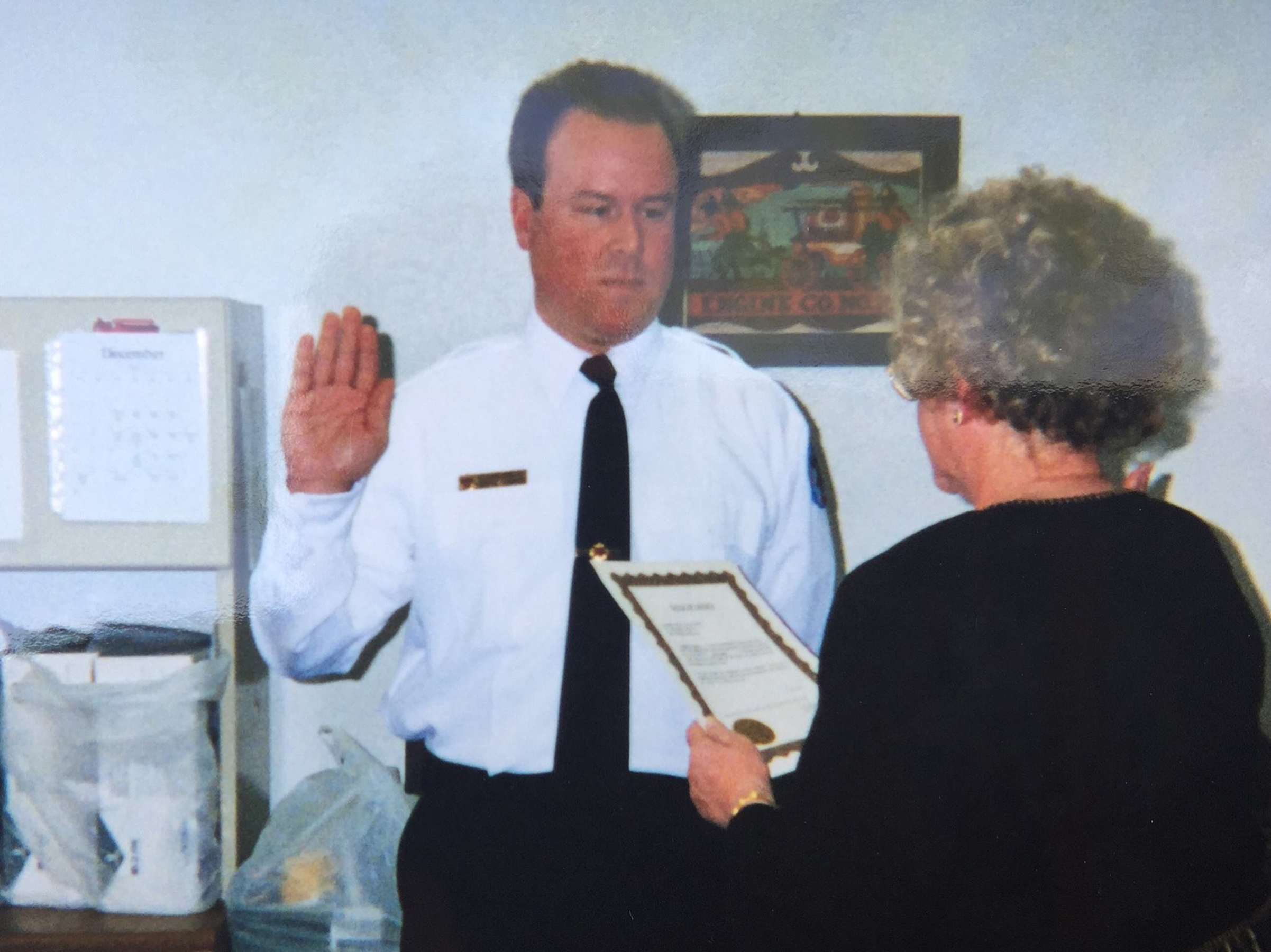
I was 34 years old when I first became fire chief. There are benefits to youthful energy and enthusiasm, but a lack of experience and maturity makes it hard to weather the loneliness, isolation and political challenges that come with the chief’s job.
Nobody Warns You How Lonely the Office Gets.
What I wasn’t prepared for was the loneliness. The silence after a hard decision. The distance that naturally forms when you move from “one of the crew” to “the one who decides.” I was a hands-on chief. I went to every working fire and major incident for my first several years. But even surrounded by the troops, I felt isolated.
Adding to that was the political backdrop. Annexation threats kept tensions high in our area, and navigating local government felt like a competitive sport with no clear rules. I was constantly guarding turf—not just for my department, but for the community we served.
And on top of all that, I wasn’t “from here.” I had come from a neighboring department, but most of the firefighters had grown up together. Literally, many went to high school with each other. I was respected (I think), but still an outsider. The “us vs. them” line? Sometimes, I was them.
I Took Things Personally—Too Personally.
I don’t say that with shame, just honesty. Every complaint. Every administrative setback. Every loss in the community. Every personnel issue. I felt it deep in my bones. There were several incidents early on that hit hard, both as an incident commander and as a caregiver on scene. The emotional weight of those moments sticks with you. And I carried it quietly. We weren’t exactly living in the “check in with your feelings” era yet (although it was emerging). Mental health wasn’t openly discussed, especially among senior leaders. I had allies and friends, but even with them, I wore a brave face. Meanwhile, inside, I was shouldering more than anyone could see.
And Then There Was Imposter Syndrome.
To make it even more interesting, I was also wrestling with impostor syndrome. A few years earlier, I’d been a well-known local radio personality. Now, I was trying to shed that identity and prove that I was more than a voice behind a microphone cracking jokes. It was a daily battle to be taken seriously, and often, that pressure came from me.
Here’s the funny part: The firefighters didn’t care about my résumé (they often made light of it, especially when someone recognized me from my previous life). They cared about whether I had their back and whether I could lead when it counted. But I was so busy trying to prove myself that I missed that simple truth for a while.
So What Would I Tell My Younger Self?
Besides being more moderate with vices and investing in Apple stock, I’d offer this advice:
1. Don’t Take It Personally
People are going to complain. Politicians will push their agendas. And sometimes bad things will happen even when you do everything right. You are not the center of the universe. That’s a good thing.
2. Wait a Bit Longer Before You Take the Helm
Leadership is a craft, and like any craft, it sharpens with time. Being a chief later in your career gives you more wisdom, more credibility and a little more freedom to say what needs to be said. There’s something powerful about having nothing to prove.
3. Don’t Be a Lone Ranger
You need people. Find the ones you trust and talk to them—really talk to them. Share the hard stuff. Build your own support system, and don’t be afraid to use it. You weren’t meant to do this job alone.
4. Sometimes You’re the Windshield, Sometimes You’re the Bug
That’s not just a country song, it’s a survival tactic. Some days, everything goes right. Other days, you get flattened. Learn from both, but don’t let either one define you.
You Know What? I’d Do It All Again.
I spent over 22 years as a chief officer. Most of those years were good—some were incredible. I helped grow departments, navigate major transitions and build teams that truly made a difference. And while the job got more complex as time went on, so did my understanding of what matters most. Eventually, I got to work for America’s Fire Chief at his family business. I would consider myself lucky!
It’s not the title. It’s not even the budget battles. It’s not the policies (although I do enjoy well-written and thought-out SOGs).
It’s the people.
I’ve worked with some extraordinary human beings—smart, compassionate, dedicated professionals who now lead departments, mentor others and make the fire service better every day. That’s my greatest accomplishment. That’s the legacy I care about.
So, to my 34-year-old self: Take a deep breath. You’ve got a lot to learn, and that’s okay. Lead with heart, lean on others and enjoy the ride—even when you feel like the bug.
It’s only 22 years as a chief officer (a total of 34 so far), and I am still kicking it as a battalion chief at my community department. How hard could it be? Only as hard as I make it!
—John Vance
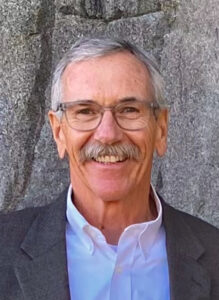
In 2007, Terry Garrison retired from the Phoenix Fire Department after serving more than 30 years. Working for Alan Brunacini and reaching the rank of assistant chief of operations helped shape Terry’s consistent values: firefighter safety and customer service. After a quick retirement, Terry served as the fire chief of the Oceanside (Calif.) Fire Department for almost three years. He then served as the chief of the Houston Fire Department for more than five years. Terry eventually moved back to where he was raised and served as the fire chief for the Glendale (Ariz.) Fire Department for more than six years before officially retiring from government service. Including his two years in the U.S. Army, Terry has worked for the government and worn a nametag and a helmet for more than 47 years. (Thank goodness for helmets.) In addition, he has traveled throughout the world teaching Fire Command, utilizing his master’s degree in education. Today, Terry and his wife, Annette, live in Phoenix. He will continue to stay connected to the fire service by working with B Shifter.
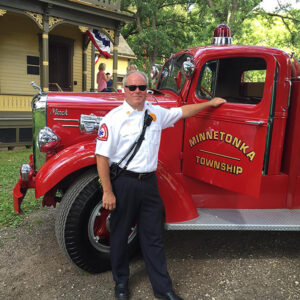
John Vance recently retired as a fire chief after 22 years in the front office. He is currently a battalion chief with the Chanhassen (Minn.) Fire Department; he has been a chief officer since 2002. He is a proud Blue Card lead instructor and an accredited chief officer through the Center for Public Safety Excellence. John has a bachelor’s degree in fire service management from Southern Illinois University and a certificate in executive management from the University of Notre Dame. He is the host of the B Shifter Podcast.



